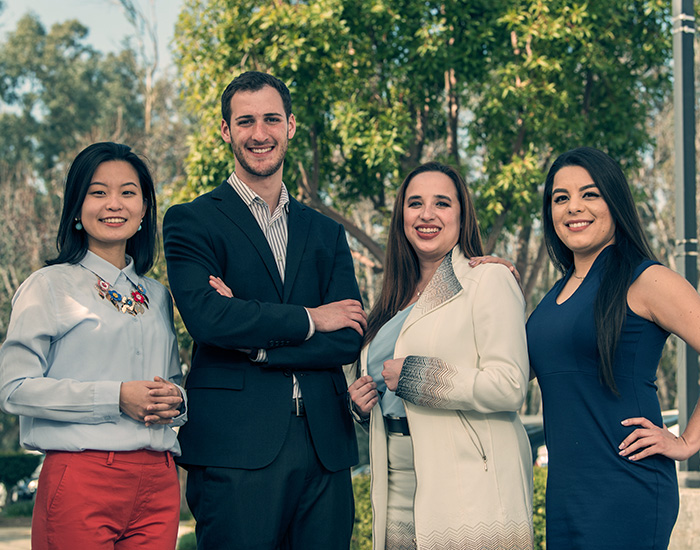Are you interested in a career in precision medicine but don’t know where to start? Keck Graduate Institute (KGI) is launching a new Clinical Genetics and Bioinformatics Program (CGB) in summer 2020, designed for undergraduate students interested in learning more about human genomics, bioinformatics, genetic counseling, and precision medicine.
“For anyone who envisions themselves in a medical career, a program like CGB is valuable because genetics is changing the healthcare landscape in a multitude of ways,” said Martin Zdanowicz, Dean of the KGI School of Pharmacy and Health Sciences.
Clinical genetics is a medical discipline that encompasses diagnostic and counseling services to detect and manage genetic disorders. Bioinformatics is an interdisciplinary field that combines biology, computer science, math, information engineering, and data analytics.
“While genetic testing and genetic counseling have been available for decades, it was a very niche service until quite recently,” said Barbara Fortini, program director for KGI’s Master of Science in Human Genetics and Genomic Data Analytics (MSGDA) program. “Today, most people have heard of genetics and perhaps even taken a genetic ancestry test, but the industry is still a black box. Very few students are aware of all of the people that are involved between mailing off a saliva sample and a report landing in their inbox a few days later.”
The CGB program is unique because it will span the entire scope of the human genetics landscape during the program’s two-week experience.
“We plan to let students sample parts along the path: from understanding how genetic tests work, how data is analyzed, how healthcare teams use the information to improve patient care, and how we use this information to invent new therapies,” Fortini said. “We will also be emphasizing the ethical questions that arise with these new technologies and give students an opportunity to sequence some DNA themselves.”
Fortini’s doctoral training was in “classical” biochemistry and genetics—which she uses to understand genomics—but she continued on with a postdoctoral degree in human genomics of colon cancer. Her postdoctoral experience opened her eyes to how genomics consortiums could answer the big questions of human disease.
Through her supplemental education, Fortini realized that new technologies are changing the ways scientists ask and answer questions of biology, and that experiments that used to take months can now be accomplished in a few days. These fields are creating more efficient pathways to understand the human genome and ultimately cure disease.
CGB will introduce students to the full range of careers available, and in the true spirit of KGI, introduce them to the ideas of innovation and entrepreneurship, which are vital for growing industries like these.
In addition to career exploration, faculty from KGI’s Master of Science in Human Genetics and Genetic Counseling program will also give firsthand insights into the role of genetic counseling in healthcare. Faculty from the MSGDA program will teach students how to work with the types of big data used in research studies and students will gain hands-on skills in understanding and analyzing genetic and genomic data. Students will also be trained in bioinformatics pipelines that may be useful for upper-level biology classes. The integration of these skills is special and may spark student interest in new and emerging career opportunities.
“I hope we get a great first cohort of students who are excited about genetics just like we are,” Fortini said.
“There are so many amazing opportunities for anyone with these skills to impact our world.”
For more information, visit kgi.edu/cgb.
